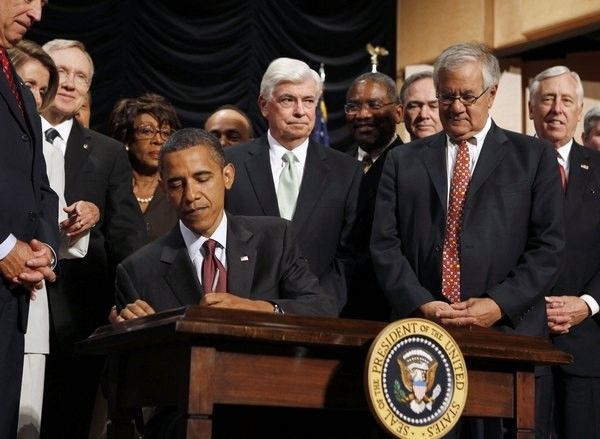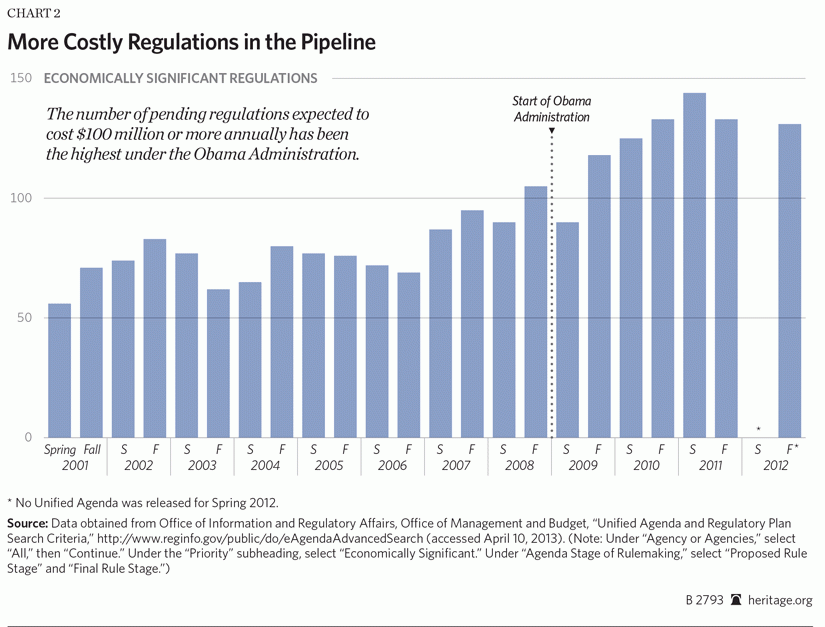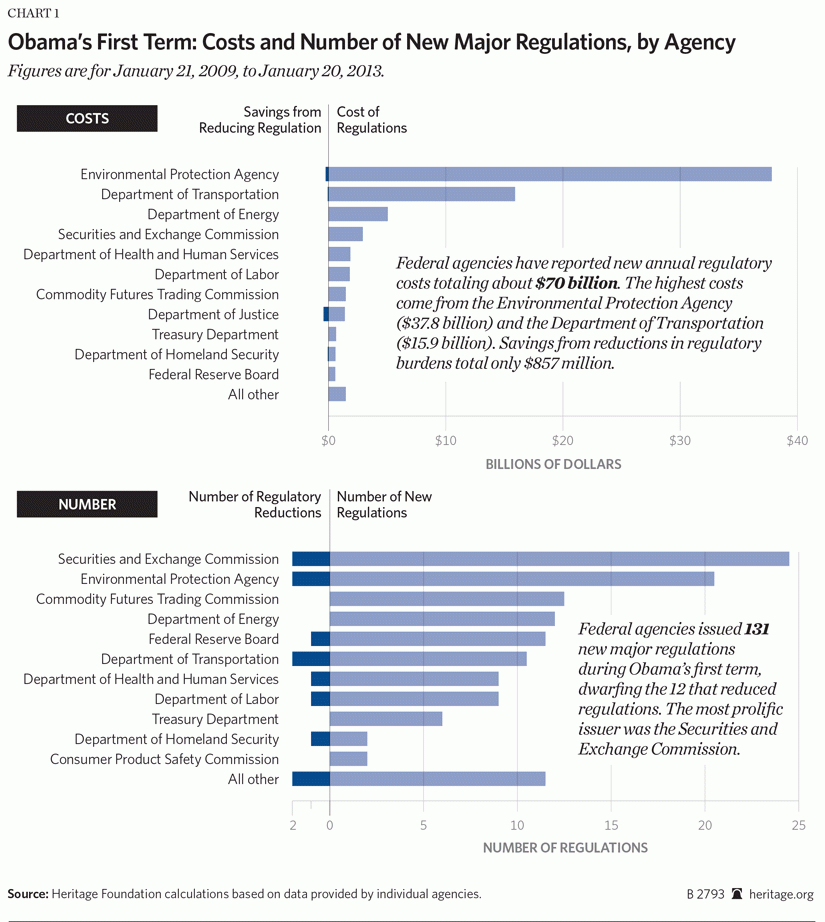Heritage Foundation Attacks White House And Congress For Enacting Regulatory Policy That Lacks Transparency


The Heritage Foundation says the Obama administration is ready to impose new regulations, and it isn't being transparent about it.
The White House office that is supposed to oversee regulatory policy has not had a director since August 2012, and legal deadlines for key reports on rulemaking have gone ignored, according to James L. Gattuso, the Heritage Foundation's Senior Research Fellow in Regulatory Policy.
"As the red tape continues to mount, the Obama administration has let regulatory oversight and transparency lapse," said Gattuso in a new report, Red Tape Rising: Regulation in Obama's First Term.
The report details 2,305 new regulations (proposed and final) in the pipeline -- many related to the Dodd-Frank statute, Obamacare and the Environmental Protection Agency's global warming crusade for coming sessions. Among these, 131 are classified as "economically significant."
The self-described conservative think tank says that the Obama administration has defended the costs of its regulations by pointing to the expected benefits while also contending that the regulations are independent of benefits.
"Even if the benefits of a particular program exceed its costs, it is still important to track how much is being spent," Gattuso said.
Yet the report says that transparency is lacking and regulatory agencies failed to provide quantified costs for 10 of the 25 major regulations issued in President Obama's fourth year.
"While regulators have an incentive to minimize the costs of regulations, they have an incentive to inflate their benefits," Gattuso said.
Moreover, the cost analyses provided by some regulatory agencies have proven to be faulty, according to Gattuso. In particular, some regulations issued by the Securities and Exchange Commission under the act have been invalidated by courts due to substandard cost-benefit analyses.
The Heritage Foundation acknowledges that not all regulations can be quantified and also that Congress ultimately authorizes all rule-making. However, it claims, a majority of rules adopted in the fourth year were promulgated by independent agencies not subject to direct White House control.

© Copyright IBTimes 2024. All rights reserved.












